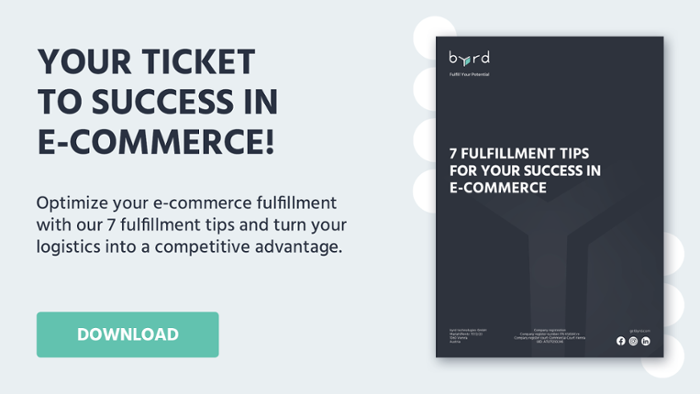Logistics terminology: Milkrun, FOB logistics, and DDP shipping
Table of Content
Logistics can be complicated and full of data and information, which is why with the help of common terminology communication can be easier, accessed, and processed quickly and accurately by all involved.
In this article, we would like to discuss three key logistics terminologies and why it is important for you to know them, milkrun logistics, FOB logistics, and DDP shipping.
Why is terminology important in the logistics world?
Knowing how to communicate within the logistics world allows for effective communication and understanding. Terminology also helps us name, discover and use processes that can be key to the optimization of your online business. As an e-Commerce merchant, it is essential that you know all, or most, of the names of the processes that exist within the logistics sector.
If you are interested in knowing more logistics terminology, this article may be of interest to you.
Milkrun logistics
This is the name assigned to a delivery method that consists of using a vehicle to collect goods from various suppliers and deliver them to a customer. This process has become popular among carriers because, by using an approach such as milkrun, the carrier can collect all the necessary parts in a single trip and ensure that they are delivered on time to the assembly line.
Fun fact: this term comes from the process of the daily collection of milk from farms by a milk truck.
The impact of Milkrun on logistics
-
This process helps you reduce overstocks and maintain a flow of production processes throughout the facility.
-
It is one of the most sustainable logistics models, offering not only economic but also environmental advantages. It reduces the number of trips and consequently reduces carbon emissions.
-
Implementing the Milkrun process can be complex because it is essential that all routes, pick-up points, and drop-off points are seamlessly synchronized. Not only that but transportation volumes, transit time and delivery time must also be taken into consideration to guarantee high levels of efficiency.
FOB logistics
Free on Board (FOB) is a term that describes the process of international maritime transport trade in which the seller is responsible for loading the goods onto the vessel and clearing them for export. Once the goods are loaded and the vessel leaves the port, the buyer is responsible for all other costs and risks associated with the transportation of the goods.

According to marine-digital both the seller and the buyer assume certain responsibilities to ensure that this process is conducted correctly.
Responsibilities from the seller side here are some insights:
- Arranging all export packaging so that the cargo can be shipped safely.
- Transportation fees while moving the cargo from the warehouse to the port of loading are incurred and are the responsibility of the seller.
Responsibilities from the buyer side here are some insights:
- The buyer must arrange transportation costs of the shipment from the port to the final destination.
- All documents, including import duties, taxes, and fees associated with customs. In case of any penalties or delays, the buyer shall bear the associated costs and risks.
The impact of FOB on logistics
- FOB logistics distributes responsibilities and helps you optimize your e-commerce supply chain.
- It also allows buyers to choose the shipping and transportation method that best suits their needs. This gives buyers more flexibility in managing their supply chain.
- Since the buyer bears the costs of transportation costs associated with import duties and taxes, FOB logistics can help the seller save money on shipping costs and associated fees.
DDP shipping
Delivery Duty Paid (DDP) refers to a shipping agreement in which all aspects of the shipment are the responsibility of the seller until the buyer (you as an e-Commerce) receives the shipment to the final destination such as your fulfillment warehouse or distribution center. The seller is not responsible for unloading.
The costs for the transportation of the goods, the cost of duties and taxes, and the cost of customs clearance; handling all aspects of the import process, including the necessary documentation and paying any applicable fees are some of the seller's responsibilities.
If the DDP is poorly managed, shipments are likely to be inspected by customs when they enter the port, which can cause delays. In addition, be aware of the seller's transportation, because if they use the services of companies with unreliable management this can lead to delays, which will certainly affect your supply chain.
The impact of DDP shipping on logistics
- DDP shipping is perfect for buyers who don't want to worry about the complexities of the international shipping process, such as customs clearance, transportation, and taxes.
- It also ensures that the buyer will receive the goods without additional charges or fees.
- This type of shipment seeks to protect the buyer and hold the sender responsible until you receive your product. It protects you as a customer from any possible scam and from paying extremely high tax costs.
FOB and DDP are incoterms
The International Chamber of Commerce (ICC) introduced International Commercial Terms (Incoterms®) to facilitate import and export trade. Incoterms act as the world's essential trade terms for the sale of goods.
For byrd incoterms are important because if a delivery is declared with the incorrect incoterms, we (or the warehouse) can take over the ownership of the goods as soon as the delivery is accepted.
Conclusion
As we have already mentioned, knowing the terminology used in the logistics world is very valuable. Not only will you be able to communicate better among logistics experts, but also knowing more logistics vocabulary will give you the possibility to find processes that can help your e-commerce supply chain.
